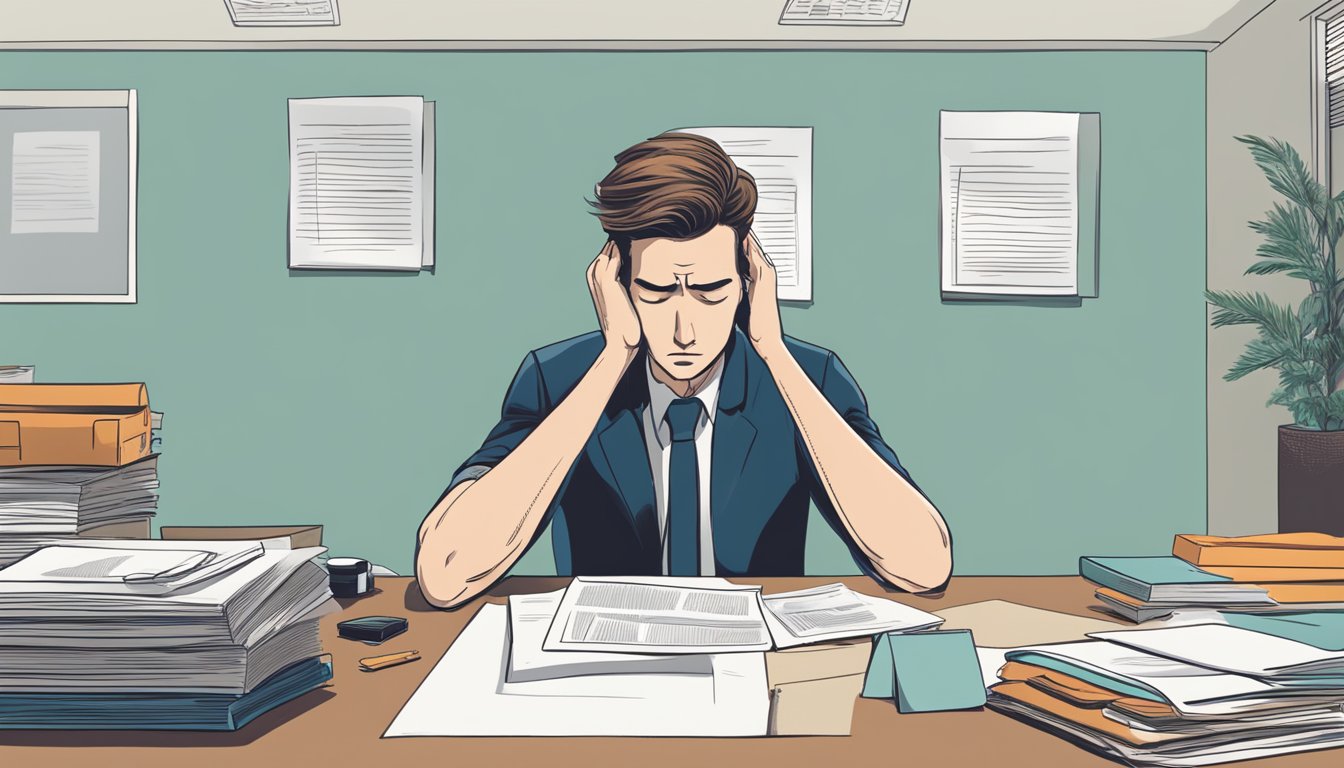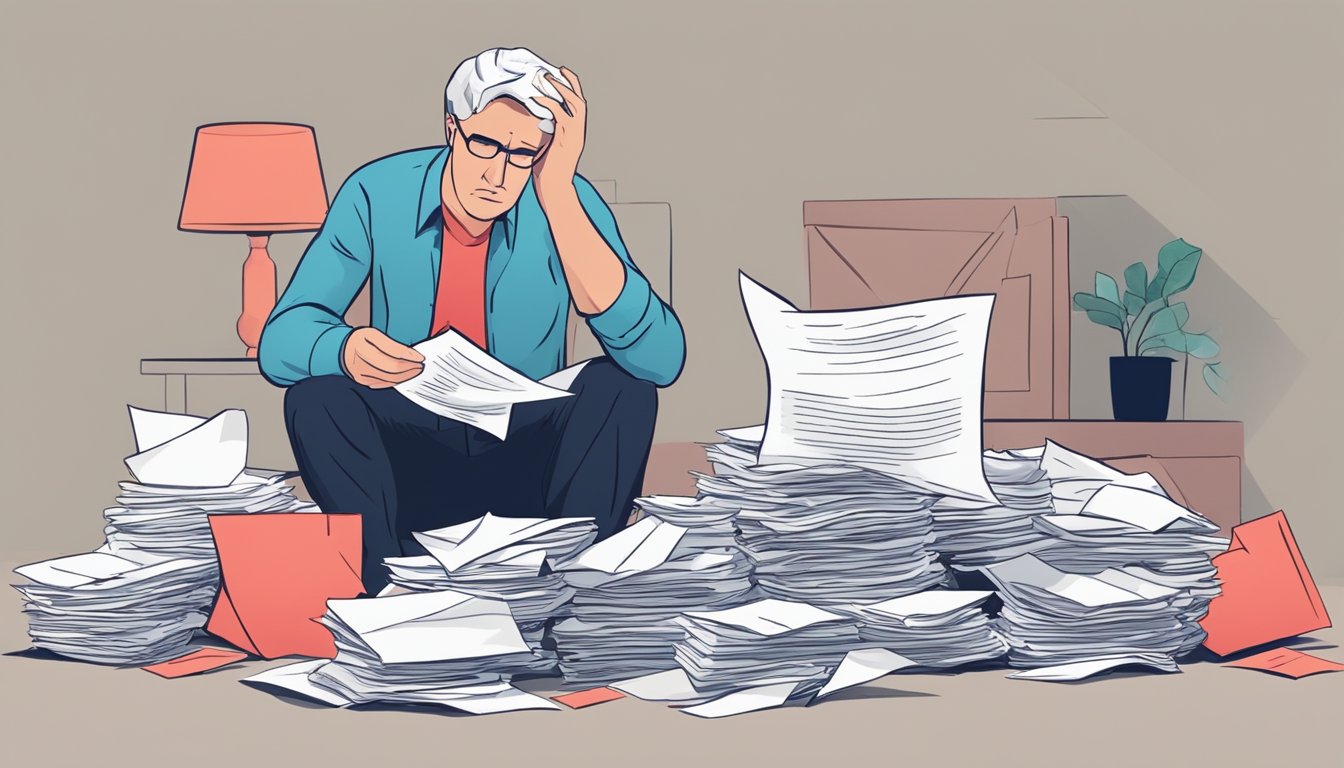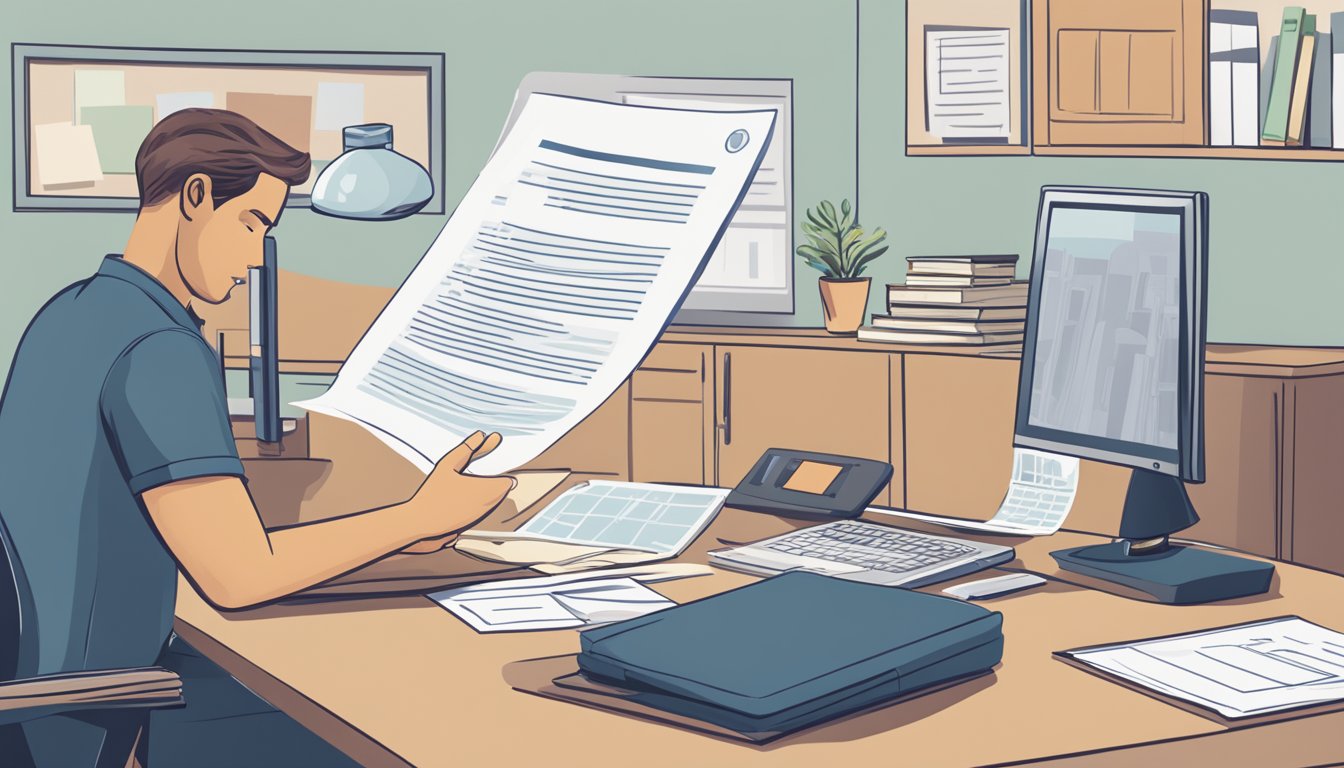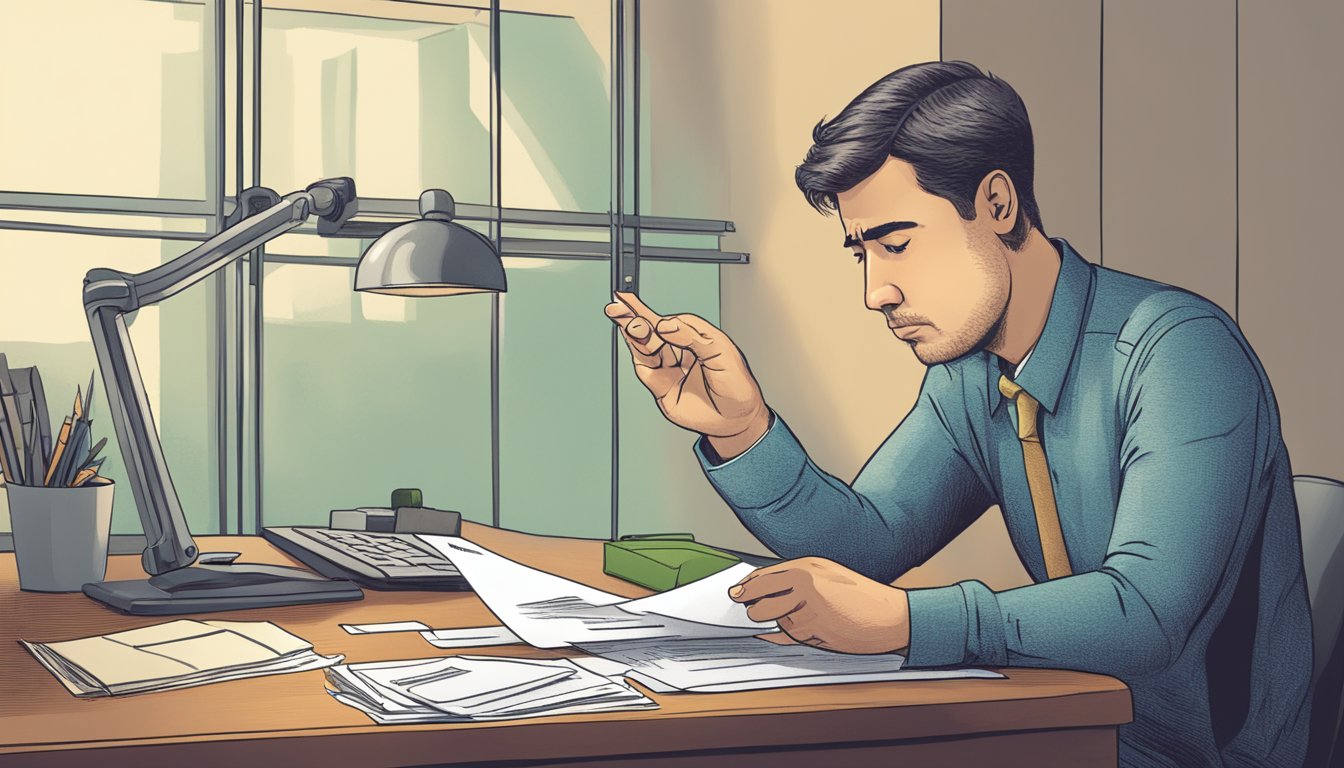If you’re in need of quick cash, applying for a personal loan may seem like a good option. However, not everyone who applies for a personal loan gets approved. In fact, many loan applications are rejected for a variety of reasons. Understanding why your personal loan application was rejected can help you take steps to improve your chances of getting approved in the future.

There are several common reasons why personal loan applications are rejected. One of the most common reasons is a poor credit score. Lenders use credit scores to determine how likely you are to repay the loan. If you have a low credit score, lenders may view you as a high-risk borrower and reject your application. Other reasons for rejection may include a lack of income, insufficient credit history, or too much existing debt.
If your personal loan application has been rejected, don’t give up hope. There are steps you can take to improve your chances of getting approved in the future. By understanding the common reasons for rejection and taking steps to address them, you may be able to improve your credit score, increase your income, or reduce your debt load, all of which can help you get approved for a personal loan.
Common Reasons for Personal Loan Rejection

If you’ve applied for a personal loan and been rejected, you’re not alone. Many people are turned down for loans every day. However, it’s important to understand why your application was rejected so that you can take steps to improve your chances of being approved in the future. Here are some of the most common reasons why personal loan applications are rejected:
Credit History and Scores
Your credit history and credit score are two of the most important factors that lenders consider when deciding whether to approve your loan application. If you have a poor credit score or a bad credit history, lenders may view you as a high-risk borrower and reject your application. This is because a poor credit score or bad credit history indicates that you may be more likely to default on the loan.
To avoid this, it’s important to check your credit report regularly and ensure that all the information on it is accurate. If you have negative items on your credit report, such as late payments or defaults, you may need to take steps to improve your credit score before applying for a loan.
Income and Employment Stability
Lenders want to be sure that you have a stable income and employment history before they approve your loan application. If you have a low monthly income or an unstable income, lenders may be concerned that you won’t be able to make your loan payments on time. Similarly, if you have a history of job hopping or unemployment, lenders may view you as a risky borrower.
To improve your chances of being approved for a loan, it’s important to have a stable income and employment history. If you’re self-employed, you may need to provide additional documentation to prove your income and stability.
Debt-to-Income Ratio Concerns
Your debt-to-income ratio is another important factor that lenders consider when deciding whether to approve your loan application. This ratio compares your monthly debt payments to your monthly income. If your debt-to-income ratio is too high, lenders may be concerned that you won’t be able to make your loan payments on time.
To improve your chances of being approved for a loan, it’s important to keep your debt-to-income ratio low. This may mean paying off some of your existing debt or increasing your income.
In summary, if you want to increase your chances of being approved for a personal loan, you need to have a good credit score, stable income and employment history, and a low debt-to-income ratio. By taking steps to improve these factors, you can increase your chances of being approved for a loan and get the money you need to achieve your financial goals.
Application and Documentation Pitfalls

When applying for a personal loan, there are a number of factors that can lead to your application being rejected. In this section, we will explore some of the common application and documentation pitfalls that you should be aware of.
Inaccuracies and Missing Information
One of the most common reasons for loan application rejection is inaccurate or missing information. Lenders need complete and accurate information in order to make an informed decision about your loan application. Make sure that you fill out all the required fields on your loan application and double-check your information before submitting it. This includes your personal information, employment history, income, and any other relevant details.
Understanding Lender’s Criteria
Lenders have specific eligibility requirements that you must meet in order to qualify for a loan. These criteria can vary depending on the lender and the type of loan you are applying for. Some basic requirements include a minimum credit score, a steady income, and a certain debt-to-income ratio. Make sure that you understand the lender’s eligibility requirements before you apply for a loan. This will help you determine whether you are likely to be approved and can save you time and frustration.
It is important to note that even if you meet all of the lender’s eligibility requirements, you may still be denied a loan. Lenders also consider other factors such as your credit history, the amount of the loan you are requesting, and any adverse action notice on your credit report. By avoiding inaccuracies and missing information, and understanding the lender’s criteria, you can increase your chances of being approved for a personal loan.
Frequently Asked Questions

What factors might lead to the denial of my personal loan application?
There are several reasons why your personal loan application might be denied. One of the most common reasons is having a poor credit score. Other factors that can lead to a loan denial include having a high debt-to-income ratio, a history of late payments, insufficient income, or insufficient credit history. It is important to review your credit report and address any issues before applying for a loan.
If my credit score is high, what other reasons could there be for a loan refusal?
Even if you have a high credit score, there are other factors that lenders will consider when reviewing your loan application. For example, if you have a high debt-to-income ratio, lenders may view you as a high-risk borrower and deny your loan request. Additionally, insufficient income or a lack of credit history can also lead to a loan refusal.
After being turned down, how soon can I reapply for a personal loan?
You can reapply for a personal loan as soon as you address the reasons for your initial loan denial. However, it is important to note that submitting multiple loan applications within a short period of time can negatively impact your credit score and make it even harder to get approved for a loan in the future.
What should I do if my loan application is repeatedly declined?
If your loan application is repeatedly declined, it may be time to reassess your financial situation and address any issues that may be causing lenders to deny your loan request. Consider working with a financial advisor or credit counselor to improve your credit score, reduce your debt-to-income ratio, and develop a plan to improve your financial standing.
Are there alternative lending options when traditional banks deny my loan request?
Yes, there are alternative lending options available when traditional banks deny your loan request. These may include online lenders, peer-to-peer lending platforms, or credit unions. However, it is important to carefully review the terms and conditions of any alternative lending options before applying.
What steps should I take if my initial loan approval is followed by a denial?
If your initial loan approval is followed by a denial, it is important to understand the reasons for the denial. Review your loan application and credit report to identify any issues that may have caused the denial. Consider working with a financial advisor or credit counselor to address these issues and improve your chances of getting approved for a loan in the future.




